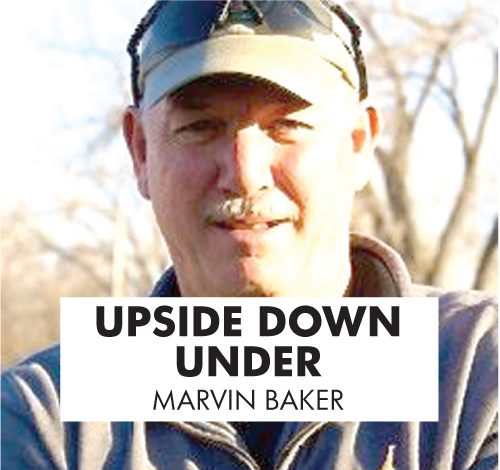In recent weeks I’ve had the opportunity to chat with two 10-year-old girls. One is my granddaughter and the other is the granddaughter of my farm intern.
They come from completely different backgrounds; one lives in a city in South Dakota and goes to a private school and the other lives in rural North Dakota and is home schooled. They’ve never met, but they have one thing in common.
They both are able to hold short conversations in Spanish. These girls are 10 years old and they have already learned a foreign language. Last week I was talking to the girl from North Dakota and told her I only know enough Spanish words to count on one hand.
She asked me what I knew and I attempted to say the words I know. Almost immediately, she corrected me because my pronunciation wasn’t quite right.
Regarding the girl from South Dakota; the last time I spoke with her, I told her that sometime this summer she and I are going to do a video skit and it’s going to be in French.
I already knew she knew some Spanish so I thought OK, let’s try a bit of French and see where that takes us. I wrote down a few phrases, then sat down with her thinking I was going to be coaching her through a conversation that takes about a minute.
Was I ever wrong. She picked up those French phrases almost as quickly as I wrote them down. I was just amazed at her attention to detail. And she has never been exposed to French.
It’s hard for me to imagine how these kids have learned a foreign language so early in their lives. I took French as a foreign language in college in order to get my degree, passed it with above average grades, then forgot about it for years.
After retiring, I took it up again, realizing I can read it with ease, I can write it quite well, but I continue to struggle to speak it, yet my granddaughter rattles it off with elequence. It’s just amazing.
But it brings to light, once again, how important a second language is. It doesn’t have to be Spanish or French. It could be German, Norwegian, Russian, Arabic, Dutch, and the list goes on.
In fact, I don’t know if this is still in effect, but for a time the Army was offering huge sign-on bonuses for people who could speak Arabic.
Because of our presence in the Middle East, the Army was in serious need of translators and so the bonus became an incentive for people who could speak the language of Iraq and Afgahnistan. If I was in my teens or early 20s, I would have jumped all over that.
Russian is also a key language to know because, as we all know, we can’t trust the Russians. And, in order to better understand what is being said on Russian media or with intercepted written communications, a strong command of the Russian language is necessary.
In public schools in Canada, French is mandatory because the nation has two official languages. But for those living on the prairies, most of them forget about it like I did after college, since it is rarely used, other than maybe in sections of inner city Winnipeg.
A second language in the United States should be as important because otherwise, those kids are going to struggle like I did when they get to college and have to have a second language to earn a bachelor’s and/or master’s degree.
It’s never too late though. There are two excellent foreign language courses that can teach you a foreign language. One, I’m sure you’ve heard of, is Rosetta Stone. Some of my Soldiers were learning Arabic through that course.
The other is Babbel, a European course that uses a different model than Rosetta Stone, but with the same outcome.
Turkish, Italian, Czech, Indian, etc., it’s just amazing how easy it can be. The courses cost some money, but even if you want to get back to your roots in Germany or Norway, this is a great way to do it.












